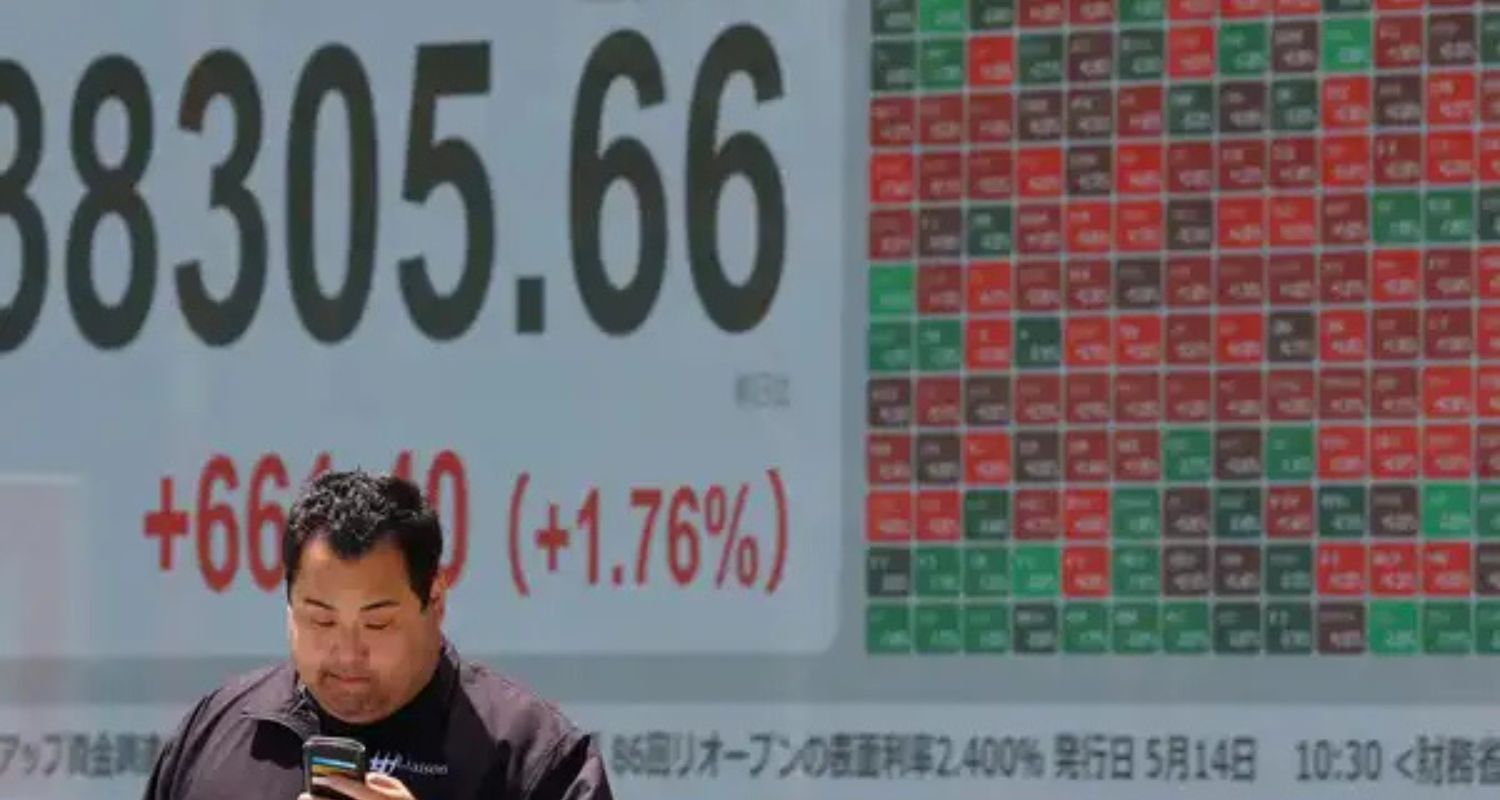Asian stock markets ended mixed on Tuesday, following modest gains on Wall Street where U.S. indexes inched to fresh record highs ahead of a week packed with earnings reports from major American companies.
In Japan, markets opened after a holiday on Monday and initially surged but later reversed course. The Nikkei 225 dipped 0.3% to close at 39,694.89. Investors had initially reacted positively to Prime Minister Shigeru Ishiba’s announcement that he would remain in office despite his coalition losing its majority in the upper house during Sunday’s election. However, concerns quickly resurfaced about the government’s reduced ability to pass legislation, adding to political uncertainty in the world’s third-largest economy.
Analysts noted that Ishiba’s political standing is now fragile. Stephen Innes of SPI Asset Management remarked that Ishiba’s leadership is “held together by political duct tape,” noting that the last three Liberal Democratic Party leaders who lost the upper house didn’t last more than two months. A breakthrough in trade negotiations with the U.S. could offer Ishiba a reprieve, but so far there has been little progress toward avoiding tariffs on Japanese exports set to begin August 1.

In other Asian markets, Hong Kong’s Hang Seng rose 0.3 per cent to 25,057.11, and the Shanghai Composite Index also gained 0.3per cent, ending at 3,568.78. India’s Sensex added 0.3 per cent, while Thailand’s SET index edged up by less than 0.1 per cent. However, South Korea’s Kospi tumbled 1.4 per cent to 3,165.40, as investors grew anxious over the looming August 1 deadline to reach a trade agreement with US President Donald Trump. Without a deal, all South Korean exports to the US could face 25 per cent tariffs. Australia’s S&P/ASX 200 was nearly flat at 8,666.30.
The tension comes as many of Trump’s proposed tariffs remain on hold after an earlier extension, giving countries more time to finalise trade agreements. But August 1 now looms as the next crucial deadline for several nations, particularly those with significant exports to the US. Meanwhile, US markets continued to set new records. The S&P 500 rose 0.1 per cent to 6,305.60, just above its previous high. The Nasdaq composite gained 0.4 per cent, closing at a record 20,974.17, while the Dow Jones Industrial Average slipped slightly, down less than 0.1 per cent to 44,323.07.
Also Read: India’s electronics exports jump 47 pc in 2025-26 Q1
Verizon Communications led the S&P 500’s modest gain, rising 4 per cent after posting better-than-expected profits and revenue for the quarter and raising its full-year forecast. Its strong results helped offset a 5.4 per cent decline in Sarepta Therapeutics, which continued to drop after the FDA asked the company to voluntarily halt shipments of its gene therapy drug, Elevidys, due to safety concerns. Block Inc., the fintech firm led by Jack Dorsey and parent company to Square and Cash App, jumped 7.6 per cent after it was announced the company will join the S&P 500 index, replacing Hess Corp., which was acquired by Chevron.
Steel producer Cleveland-Cliffs saw a strong rally of 12.4 per cent after reporting a smaller-than-expected loss and record steel shipments of 4.3 million net tons in the second quarter. CEO Lourenco Goncalves noted that tariffs have begun to show positive effects on domestic manufacturing, particularly benefiting U.S.-based auto suppliers like Cleveland-Cliffs.
In commodity markets early Tuesday, U.S. benchmark crude oil fell 71 cents to $65.24 per barrel. Brent crude, the international benchmark, slipped 69 cents to $68.52 per barrel. In currency trading, the U.S. dollar strengthened to 147.62 Japanese yen from 147.38 yen, while the euro edged down to $1.1691 from $1.1696.
Also Read: New EU sanctions on Russia put India’s oil trade at risk



